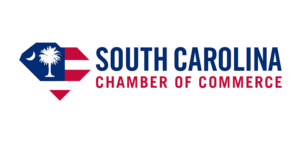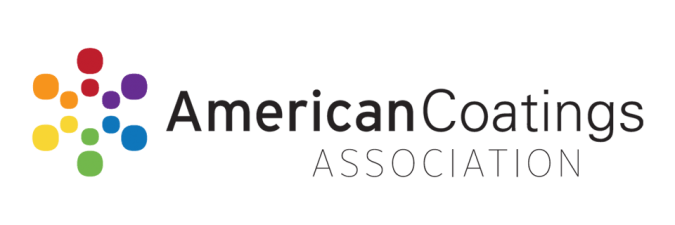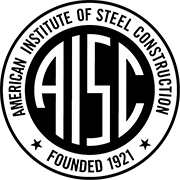FAQ
Q: What is toll manufacturing?
A: Sumter Coatings will make your formula and package it with your label, using your quality control specifications. Additionally, some of Sumter Coatings products may be purchased under your label.
Q: What steel coating types can you use for steel fabrication?
A: Generally, solvent-based alkyds are used as shop primers for structural steel; however, water-based, epoxy, zinc rich and other more sophisticated primers may be specified. If a topcoat is to be used, the type of topcoat will mandate the type primer to be used.
Q: What type of paint is the best industrial paint for metal?
A: It depends on whether the desired performance characteristics are for short-term or long-term durability. An alkyd primer with alkyd enamel topcoat may be sufficient for an interior exposure or short-term exterior exposure. A two-component epoxy primer with the two-component polyurethane topcoat is best for long-term exterior exposure.
Q: What is the difference between organic and inorganic zinc-rich primers?
A: Organic zinc-rich primers are based on epoxy resin technology, are typically more tolerant of marginally prepared substrates and exhibit less application and top-coating difficulties. Inorganic zinc-rich primers are based on ethyl silicate resin technology, require a more precise film thickness and are more susceptible to climate variations for cure.
Q: What are the benefits of electrostatic painting?
A: Electrostatic Painting offers the greatest percentage of transfer efficiency of any type of spray applications. There are some units that offer over 80% and some as high as 95% transfer efficiency. This reduces loss resulting into large savings.
Electrostatic Painting offers a nice sprayed paint job on-site without the worry of overspray getting on things in the area that do not require painting. Of course, if outdoors, be careful if wind is a factor.
Please ask about our NuCharge It! Electrostatic Coatings that are ready to spray without any altercations.
Q: What is coal tar epoxy used for?
A: Coal Tar Epoxy has a high permeability rating, which means it is suitable for immersion service in non-potable water. It may be used for buried tanks pipe lines, steel boat and barge hulls, etc.
Q: What type of primer is best to use for structural steel?
A: It depends on the anticipated length of time until the steel is erected, enclosed and /or top-coated. Generally, a shop coat such as Sumter Coatings 77 Series Inhibitive Primer, which will impart corrosion protection for 2 to 3 months is sufficient. If the steel primer is to remain exposed for an extended period of time, a heavy-duty primer such as Sumter Coatings 99 Series should be used. The intended topcoat may also dictate the primer. A universal or epoxy primer should be used if the steel is to receive a high- performance topcoat such as epoxy or polyurethane.
Q: What type of coating is best for ornamental iron?
A: Durable, rust inhibitive and fast dry paints are best for painting ornamental irons. Good protective coatings are a must when painting decorative metals, either from the primer or from a DTM (direct-to-metal) paint such as our popular “Metal Master” Satin Enamel.
Fast dry offers quick turn-around times when painting indoors where space is limited. Our “Metal Master” paints and primers are especially formulated for use on Ornamental Iron and Miscellaneous Metals.
Q: What are enamel paints used for?
A: Enamel is a generic term, which typically refers to a topcoat which can be used over a primer or an existing coating.
Q: What is an OEM coating?
A: An OEM (Original Equipment Manufacturer) coating is one typically applied in a manufacturing facility such as agricultural equipment.
Q: What type of coating can you use on a propane tank?
A: Use coatings that yield themselves to being flexible once dried to prevent cracking as propane tanks tent to expand and contract on a regular basis. Also, if applying coating by use of a roller or brush, use a paint that does not bubble or leave ugly brush or roller marks in the coating.
Consider our full line of custom formulated primer and coatings for propane tanks when making your painting choices.
Q: What does SSPC stand for?
A: Originally, SSPC stood for Steel Structures Paint Council. Today it stands for The Society for Protective Coatings.
Q: How can I calculate how much paint to use?
A: Calculate the number of square feet to be painted. Refer to the manufacturer’s Product Data Sheet for the recommended wet film thickness, dry film thickness and spread rate per gallon. Divide the number of square feet by the spread rate per gallon. Note: These numbers are usually based on 100% paint utilization. A loss factor should be determined depending on application method, condition of substrate and environmental factors. Transfer efficiency is greater when brushing and rolling than when spraying. The former may only be 10% whereas the latter may be 30% or higher.
Q: Is Epoxy Primer Waterproof?
A: Yes, epoxy primer is waterproof. To learn more about the 5 epoxy primers we offer, click here: epoxy primers.
Q: What are proper storing procedures?
A: We recommend keeping your product out of direct sunlight or in extreme cold temperatures, as both temperature extremes can render your product useless. The shelf life of these products is one year unopened from date of manufacturer.
Q: Do you have color cards or brochures that show me what colors are available?
A: We have color cards & brochures available for OEM Industrial Enamels, Enviro Tuff, Nu Charge It, Galvalox, Metal Master, and Propane Tank.
Q: Does the coating need special equipment for application?
A: Sumter Coatings products can be applied by airless spray, air-assisted airless, conventional spray, by brush, or by roll.
Q: Do I need to thin the product before use?
A: We recommend thinning the product up to 10% by volume with Enviro-Pox Thinner. Make sure the thinner is well incorporated into the paint prior to application as it affects spread rate and application characteristics.
Q: Do you have a guide to choosing the best product for my application?
A: Yes, we have a product selection guide that will help you choose the best product for your application. We include exposure, typical applications, type system, resistance levels to various elements, and the primer, intermediate, and finish.
http://www.sumtercoatings.com/assets/pdfs/Product-Selection-Guide-Chart-June-2013.pdf
Q: What types of industries do you have products for?
A: We serve the following industries:









